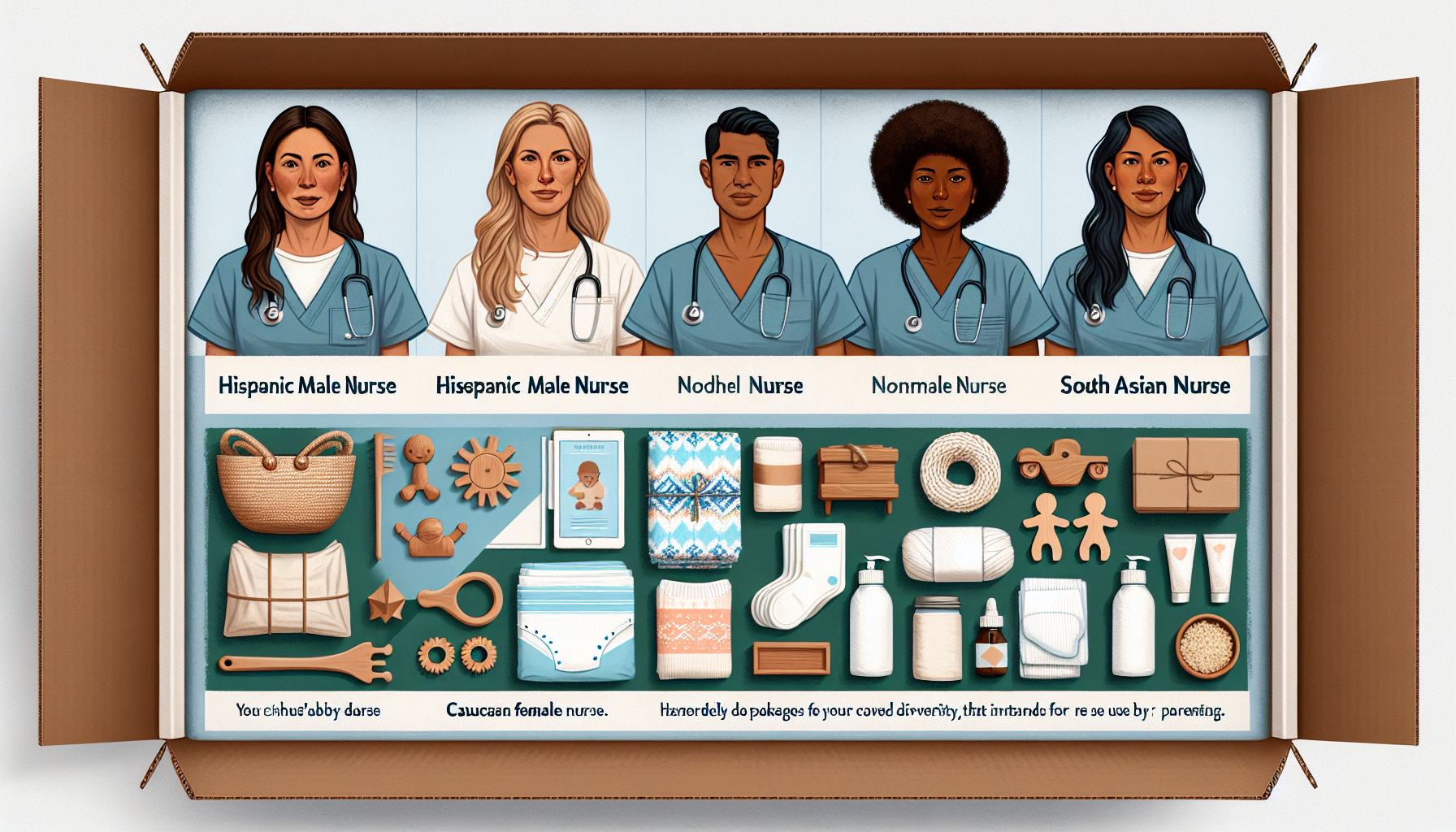Navigating the Journey of a Labor and Delivery Nurse

Labor and delivery nurses have numerous responsibilities aimed at ensuring the safety and comfort of mothers and newborns. Their primary duties include: 1. Monitoring Vital Signs: Nurses continuously assess the mother’s vital signs and the baby’s heart rate, ensuring both are stable throughout the labor process. 2. Administering Medications: These nurses are responsible for providing medications, including pain relief options such as epidurals, to help manage the mother's discomfort during labor. 3. Assisting with Labor Progress: Labor and delivery nurses assess the progress of labor, offering encouragement and support while preparing for potential complications. 4. Educating Patients: They play a crucial role in educating mothers about their birthing options, teaching breathing techniques, and providing information about what to expect during labor and delivery. 5. Advocacy: Serving as advocates for their patients, these nurses communicate the mother’s wishes to the medical team and ensure that her voice is heard in the decision-making process. The educational component of their role is particularly significant, as it empowers mothers to make informed decisions about their birth experiences and fosters a sense of control during a time that can often feel overwhelming.
Daily Challenges
The life of a labor and delivery nurse is filled with unpredictability and challenges: - Unpredictability of Childbirth: No two shifts are alike in labor and delivery. Nurses must be prepared to handle emergencies at a moment’s notice, whether it’s a sudden complication or a rapid delivery. - Long Hours and Fatigue: Nurses often work long shifts, including nights, weekends, and holidays. This demanding schedule can lead to physical and emotional exhaustion. - Emotional Dynamics: Navigating the emotional needs of expectant mothers and their families can be challenging. Nurses often provide reassurance and comfort while maintaining a professional demeanor in high-stress situations. - High-Pressure Environment: The labor and delivery unit can be a high-pressure environment. The ability to remain calm and composed is essential, as nurses must make quick decisions that can impact the health and safety of both mother and baby.
Emotional Rewards
Despite the challenges, the emotional rewards of being a labor and delivery nurse are profound: - Witnessing the Miracle of Birth: Being part of the miraculous event of birth provides immense satisfaction. Nurses often feel a deep sense of joy and fulfillment in welcoming newborns into the world. - Building Bonds with Patients: Many labor and delivery nurses form strong connections with the families they support, experiencing the gratitude and appreciation of parents during such a significant milestone. - Impact on Maternal and Infant Health: Research indicates that supportive nursing care during labor can lead to better outcomes for both mothers and infants, including reduced rates of cesarean sections and improved breastfeeding success. Knowing their work directly impacts maternal and infant health serves as powerful motivation for these healthcare professionals.
Skills Required
To excel as a labor and delivery nurse, certain skills and qualities are essential: 1. Communication Skills: Effective communication is vital for educating and comforting patients throughout the labor process. 2. Empathy and Compassion: These qualities enable nurses to connect with mothers and families on an emotional level, providing the support they need during a vulnerable time. 3. Critical Thinking and Problem-Solving: Nurses must be able to make quick decisions in high-pressure situations, demonstrating strong critical thinking skills. 4. Formal Education: Most labor and delivery nurses hold a Bachelor of Science in Nursing (BSN) and have passed the NCLEX-RN examination. Many also pursue specialized training and certification in obstetric nursing.
Networking and Job Opportunities
For those interested in pursuing a career as a labor and delivery nurse, networking can be beneficial. Utilizing platforms like LinkedIn can help aspiring nurses connect with professionals in the field. Here are some strategies and job titles to consider: - Join Professional Organizations: Engaging with organizations such as the Association of Women’s Health, Obstetric and Neonatal Nurses (AWHONN) can provide networking opportunities and access to job postings. - Follow Relevant Companies: Keep an eye on hospitals and healthcare systems known for their maternity services. Notable organizations include HCA Healthcare, UPMC, and Kaiser Permanente. - Job Titles to Search: Look for positions labeled as “Labor and Delivery Nurse,” “Obstetric Nurse,” or “Maternal Child Health Nurse” for relevant job opportunities.
The journey of a labor and delivery nurse is one filled with challenges, rewards, and a profound sense of purpose. These dedicated professionals are essential to the childbirth process, providing physical care, emotional support, and education to families during a pivotal life event. By understanding the multifaceted role of labor and delivery nurses, we can appreciate their significant impact on maternal and infant health. Their commitment to empowering mothers and ensuring safe births underscores the importance of their profession in the evolving landscape of healthcare. As we recognize the profound contributions of labor and delivery nurses, it becomes clear that their role is not just a job; it is a calling to make a meaningful difference in the lives of families during one of their most cherished moments.
Certified Nurse Midwife (CNM)
Hospitals with maternity wards, birthing centers, and private practices focusing on women’s health
Core Responsibilities
Provide comprehensive prenatal, intrapartum, and postpartum care for expectant mothers.
Conduct routine gynecological exams and family planning counseling.
Manage low-risk deliveries in various settings, including home births and birthing centers.
Required Skills
Advanced clinical skills and knowledge in obstetrics and gynecology.
Strong communication skills for patient education and family support.
Certification as a Nurse Midwife (CNM) and a Master’s degree in Nurse Midwifery.
Obstetric Sonographer
Hospitals, outpatient imaging centers, and maternal-fetal medicine clinics
Core Responsibilities
Perform ultrasounds to assess fetal development and monitor maternal health.
Communicate findings with obstetricians and provide guidance on further imaging or interventions.
Maintain accurate records and ensure compliance with safety standards.
Required Skills
Proficiency in operating ultrasound equipment and interpreting imaging results.
Attention to detail and strong analytical skills for accurate assessments.
Certification as a Registered Diagnostic Medical Sonographer (RDMS) in obstetrics and gynecology.
Perinatal Clinical Nurse Specialist (CNS)
Academic medical centers, hospitals, and health systems with specialized maternity services
Core Responsibilities
Provide expert consultation on complex cases involving high-risk pregnancies.
Develop and implement evidence-based practices to improve maternal and infant outcomes.
Educate nursing staff and provide mentorship in the labor and delivery unit.
Required Skills
Advanced clinical expertise in perinatal care, including knowledge of fetal monitoring and obstetric emergencies.
Strong leadership skills and experience in clinical education.
Master’s or Doctorate in Nursing, with specialization in perinatal care.
Lactation Consultant (IBCLC)
Hospitals, clinics, and private practice settings focusing on maternal health
Core Responsibilities
Provide breastfeeding education and support to new mothers in the hospital and outpatient settings.
Assess and troubleshoot breastfeeding issues, including latch problems and milk supply concerns.
Collaborate with healthcare teams to create individualized feeding plans for mothers and infants.
Required Skills
In-depth knowledge of breastfeeding techniques and infant nutrition.
Strong interpersonal skills to build trust and rapport with new families.
Certification as a Lactation Consultant (IBCLC) and experience in maternal and child health.
Maternal-Fetal Medicine (MFM) Specialist Nurse
Hospitals with specialized maternal-fetal medicine departments, academic medical centers, and research institutions
Core Responsibilities
Assist in the care of women with high-risk pregnancies, including those with chronic conditions or pregnancy complications.
Coordinate care with obstetricians, neonatologists, and other specialists to ensure comprehensive management.
Educate patients about their conditions and potential risks associated with high-risk pregnancies.
Required Skills
Advanced understanding of maternal-fetal medicine principles and practices.
Strong critical thinking and clinical assessment skills to monitor complex cases.
Experience in obstetric nursing and specialized training in maternal-fetal medicine.


